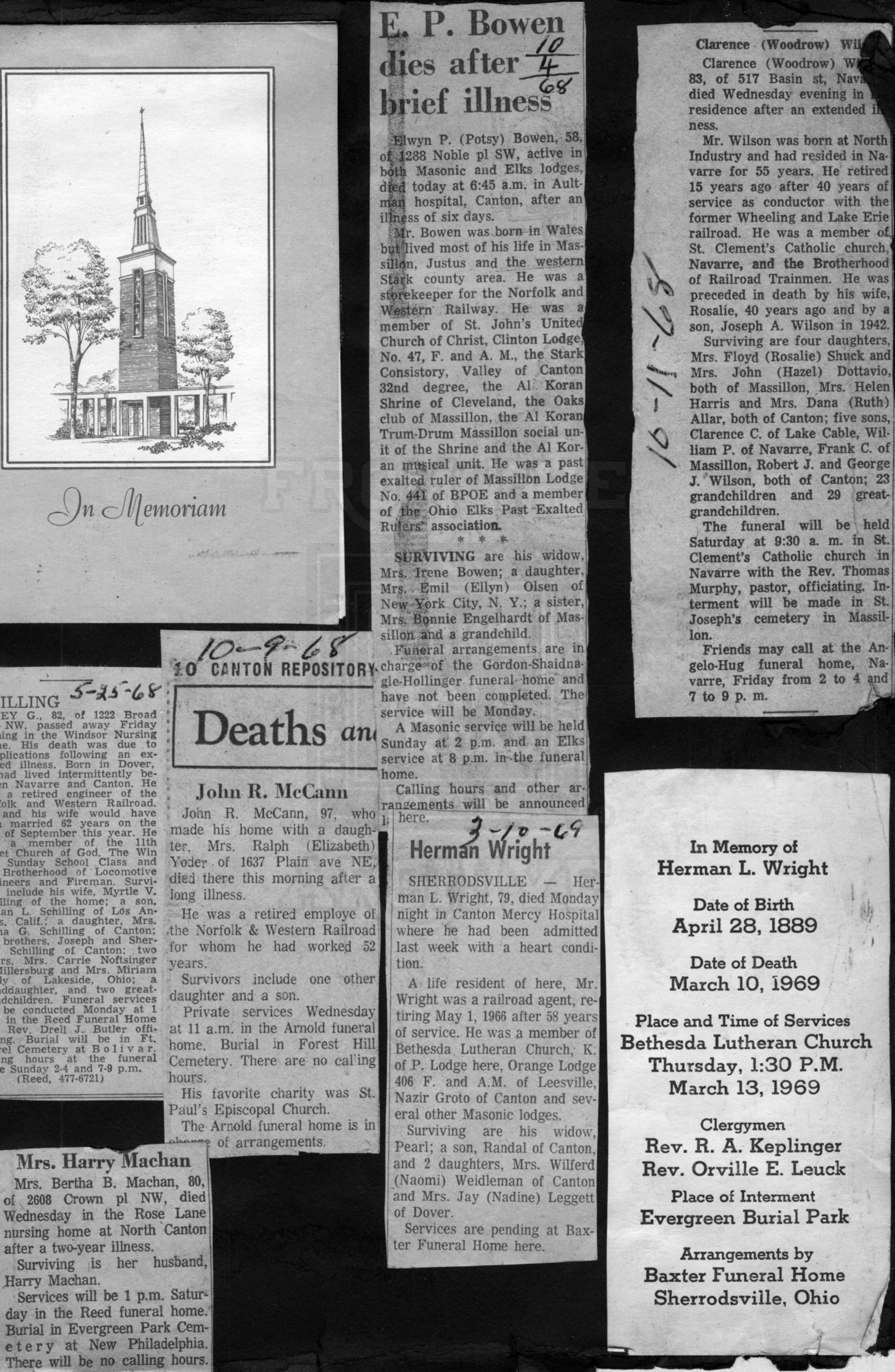Let’s cut straight to the chase here folks. If you’ve ever stumbled upon the term gr mi press obits and wondered what it’s all about, you’re in the right place. This isn’t just another boring article filled with fluff—nope, we’re diving deep into the fascinating world where press releases meet obituaries. Whether you’re a journalist, a curious mind, or someone grieving, understanding how obits are handled by press outlets can be a game-changer.
Now, here’s the deal: the phrase "gr mi press obits" might sound cryptic at first, but it’s actually pretty straightforward once you break it down. GR stands for Grand Rapids, MI refers to Michigan, and "press obits" is shorthand for obituaries published in local or regional press. This combination plays a vital role in honoring lives, connecting communities, and preserving memories. Stick around, because we’re about to uncover some serious insights.
Let me throw this out there: obituaries aren’t just death announcements anymore. They’ve evolved into powerful narratives that celebrate life, legacy, and impact. And when these stories are shared through the press, they reach wider audiences and resonate on a deeper level. So, buckle up, because we’re about to explore how gr mi press obits work, why they matter, and how they shape our understanding of community and memory.
Read also:All About The Scam That Involved Sale Of A Stick Touted As Queen Elizabeth Iis Cane
What Are GR MI Press Obits?
Alright, let’s start with the basics. GR MI press obits are essentially obituaries published by local newspapers or media outlets in Grand Rapids, Michigan. These aren’t just random death notices; they’re carefully crafted stories that pay tribute to the lives of individuals who’ve passed away. Think of them as mini biographies that highlight achievements, relationships, and contributions to society.
Here’s a fun fact: obituaries have been around for centuries, but their format has changed dramatically over time. Back in the day, they were often brief and formal. But today, they’re more personal and detailed, often including photos, quotes, and even links to online memorials. This evolution reflects our growing desire to honor loved ones in meaningful ways.
Why Do GR MI Press Obits Matter?
Let’s break it down. Obituaries published in the press serve several important purposes. First and foremost, they inform the community about someone’s passing, which is crucial for planning funerals and offering condolences. But beyond that, they also celebrate the life of the deceased, preserving their story for future generations. In a world where digital footprints fade quickly, these press obits act as permanent records.
Another reason GR MI press obits matter? They foster a sense of connection. When people read about others in their community, it creates empathy, understanding, and sometimes even inspiration. Plus, they provide closure for families who want to share their loved one’s story with a broader audience.
The Process of Creating GR MI Press Obits
So, how exactly do these obituaries make it into the press? It’s not as simple as sending an email or making a phone call. There’s a whole process involved, and it starts with gathering information from the family or funeral home. This includes details like the person’s name, age, cause of death, surviving family members, and any special requests or instructions.
Once the info is collected, it’s sent to the press outlet, which reviews and edits the content before publication. Some newspapers even offer online submission forms, making the process easier and faster. But here’s the kicker: not all submissions get published. Editors have to prioritize based on space, relevance, and other factors. So, it’s important to make your obit stand out.
Read also:5 Insider Secrets About Costcos Free Samples That You Probably Never Knew About
Tips for Writing a Memorable Obituary
Now, let’s talk about how to write an obituary that truly honors the deceased. Here are a few tips to keep in mind:
- Keep it concise but meaningful. Focus on the most important details about the person’s life.
- Include personal anecdotes or stories that highlight their unique qualities.
- Mention their achievements, hobbies, and passions to give readers a fuller picture.
- Provide contact info for family members or details about memorial services if applicable.
- Proofread carefully to avoid errors or omissions that could cause hurt feelings.
Remember, the goal is to create a tribute that reflects the person’s life and legacy. Don’t be afraid to get creative with your wording—it’s their story, after all.
How GR MI Press Obits Impact Communities
Communities thrive on connection, and press obits play a key role in fostering that connection. When people read about others in their area, it creates a sense of unity and shared experience. For example, if someone in the community passes away due to a rare illness, their obituary might raise awareness and inspire others to take action.
But the impact goes beyond just raising awareness. Press obits also help bridge generational gaps. Younger members of the community can learn about the lives and contributions of older generations, creating a deeper appreciation for history and tradition. And for those grieving, seeing their loved one’s story in print can be incredibly comforting.
Challenges in Publishing GR MI Press Obits
Of course, nothing is perfect, and publishing press obits comes with its own set of challenges. One major issue is accuracy. With so much information being processed, mistakes can happen, and those mistakes can be hurtful to families. That’s why it’s crucial for both the press and the submitters to double-check everything before publication.
Another challenge is space. Not every obituary can be published, especially in smaller newspapers with limited resources. This means tough decisions have to be made about which stories to prioritize. And then there’s the cost factor—some outlets charge fees for longer or more detailed obituaries, which can be a barrier for some families.
Technological Advancements in GR MI Press Obits
Technology has revolutionized the way we handle obituaries. Gone are the days of waiting weeks for a print edition to come out. Nowadays, many press outlets offer online platforms where obituaries can be published instantly. This allows families to share their loved one’s story with a global audience at the click of a button.
But that’s not all. Social media has also played a huge role in spreading obituaries. Platforms like Facebook and Twitter allow people to share links to press obits, reaching even more people than traditional methods ever could. Plus, online memorials and tribute pages offer additional ways to honor the deceased.
Benefits of Digital GR MI Press Obits
Here are just a few benefits of going digital with your obituaries:
- Instantaneous publication means faster access for family and friends.
- Global reach allows people from all over the world to pay their respects.
- Interactive features like comments and photo galleries enhance the experience.
- Cost-effective options make it easier for families to afford detailed obituaries.
It’s clear that technology has opened up new possibilities for how we handle death and remembrance. But it’s important to remember that no matter how advanced the tools become, the heart of an obituary will always be the story it tells.
Legal and Ethical Considerations
When it comes to publishing obituaries, there are legal and ethical considerations that can’t be ignored. Privacy laws, for instance, dictate what information can and cannot be shared publicly. Families need to be aware of these laws to avoid potential legal issues down the line.
Then there’s the ethical responsibility of the press to handle sensitive information with care. This means verifying facts, respecting family wishes, and avoiding sensationalism. Journalists and editors must balance the public’s right to know with the family’s right to privacy, which can sometimes be a tricky line to walk.
Best Practices for Ethical Publishing
Here are some best practices for ensuring ethical publication of press obits:
- Always obtain consent from the family before publishing sensitive details.
- Verify all information through multiple sources to ensure accuracy.
- Respect cultural and religious traditions when crafting the obituary.
- Provide clear guidelines for families on what can and cannot be included.
By following these guidelines, both families and press outlets can ensure that obituaries are handled with the respect and dignity they deserve.
Future Trends in GR MI Press Obits
Looking ahead, it’s clear that the world of press obits is evolving rapidly. Virtual reality, for instance, could one day allow people to experience a deceased person’s life story in immersive ways. And as AI technology advances, we might see more automated systems for generating and publishing obituaries.
But no matter how technology changes, the core purpose of obituaries will remain the same: to honor and remember those who have passed. It’s up to us to ensure that these stories are told with care, accuracy, and compassion.
Conclusion: Why GR MI Press Obits Matter
To sum it all up, GR MI press obits are more than just death announcements—they’re stories of lives lived, legacies left behind, and communities connected. Whether you’re reading them, writing them, or publishing them, understanding their importance can change the way you view death and remembrance.
So, what’s next? If you found this article helpful, feel free to share it with others who might benefit. And if you have any questions or comments, drop them below—I’d love to hear from you. Remember, every life deserves to be celebrated, and every story deserves to be told.
Table of Contents
- What Are GR MI Press Obits?
- Why Do GR MI Press Obits Matter?
- The Process of Creating GR MI Press Obits
- How GR MI Press Obits Impact Communities
- Technological Advancements in GR MI Press Obits
- Legal and Ethical Considerations
- Future Trends in GR MI Press Obits



